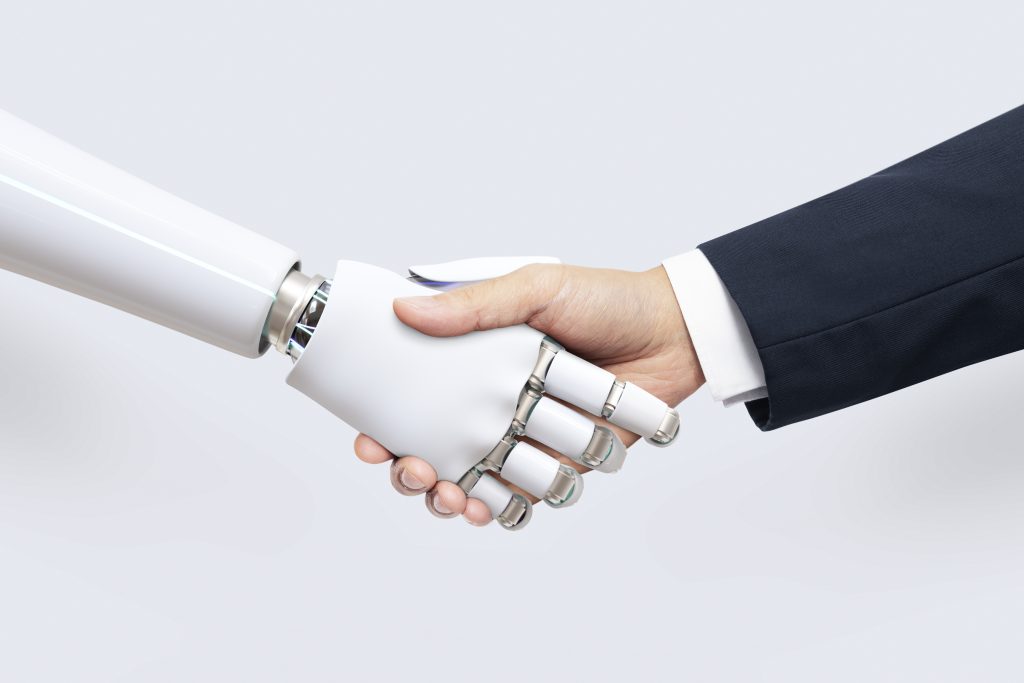Artificial Intelligence (AI) has become one of the most influential factors in the world of online marketing, offering tremendous potential to analyze data, predict customer behavior, and personalize marketing campaigns with unprecedented accuracy. With the rapid evolution of technology, businesses of all sizes are increasingly relying on AI solutions to boost their online presence, increase sales, and improve customer satisfaction.

First: The Impact of Artificial Intelligence on Digital Marketing
Big Data Analytics
Artificial Intelligence (AI) algorithms allow businesses to analyze massive amounts of data accurately and quickly. By knowing the behavior of users on websites and social media, patterns and trends can be extracted to help understand customer needs and anticipate their desires, thereby optimizing marketing campaigns and increasing their effectiveness.
Personalization
Personalization is one of the main advantages of AI in online marketing, as offers and products can be tailored to the interests and preferences of each individual customer. This improves the user experience and motivates customers to engage more with advertising content, increasing conversion rates and sales.
Automation
AI helps automate many marketing tasks such as sending emails at optimal times, managing multi-platform campaigns, and analyzing performance in real-time. This automation saves time and human resources, and allows marketers to focus on strategic and creative aspects.
Chatbots and Customer Service
Artificial Intelligence (AI) technologies provide advanced chatbots that can understand and respond to customer queries in natural language, improving the customer experience and reducing the waiting time and cost of technical support service. These bots work around the clock and provide uninterrupted service, increasing customer satisfaction.
Search Engine Optimization (SEO) and digital advertising
AI helps optimize SEO strategies by analyzing keywords and predicting changes in search engine preferences. Machine learning is also being adopted in advertising platforms such as Google and Facebook to fine-tune bids and target the optimal audience accurately and efficiently.

II: AI tools useful in digital marketing
Google Analytics (with Smart Analytics)
It enables you to track visitor behavior and accurately understand their preferences.
Intelligence provides automatic alerts on changes in traffic and performance.
HubSpot and Marketo (marketing automation platforms)
It helps to manage customer relationship management (CRM) and automate mailing and advertising campaigns.
Includes AI-powered features to analyze campaign performance and make recommendations for optimization.
IBM Watson
A comprehensive platform that offers natural language processing (NLP), image and video analysis.
Watson can be integrated with marketing tools to better understand consumer sentiment and behavior.
ChatGPT
An advanced natural language processing model that can be used to write marketing content, prepare advertising scenarios, and answer customer inquiries.
Helps provide creative ideas for campaigns and optimize audience engagement with the brand.
SEMrush and Moz (for SEO analysis)
Powerful tools for keyword research and monitoring site rankings in search engine results pages (SERPs).
Powered by artificial intelligence technologies that help predict the most influential keywords and analyze competitors.
Adext AI
A tool that specializes in managing online advertising campaigns based on machine learning algorithms.
It analyzes data and directs the advertising budget to the segments that are most likely to buy the product or service.
Third: Tips for making the most of AI in digital marketing
Clearly define goals
Before adopting any AI technology, the goals of the marketing campaign and the metrics to be optimized must be precisely defined, whether it's increasing sales, enhancing brand awareness, or expanding the customer base.
Choosing the right tools
Tools vary depending on the size of the company, the type of activity, and the target audience. It is important to research and compare the available tools to choose the most suitable solutions.
Continuous analysis and evaluation
The performance of AI tools should be continuously monitored, Feedback should be gathered from the results of marketing campaigns, and plans should be adjusted based on this information to achieve the best results.
Focus on the customer experience
AI alone is not enough to ensure the success of digital marketing; you need to build strong relationships with customers and provide an integrated experience and valuable content that meets their needs.
Artificial Intelligence (AI) has revolutionized the world of digital marketing through its ability to quickly and accurately analyze data and deliver personalized customer experiences, improving campaign efficiency and increasing return on investment (ROI). However, AI does not replace the role of the human element and creativity in communicating with the audience and developing innovative strategies. It is the balanced combination of smart technology and the human touch that ensures businesses can keep up with the challenges and capitalize on new opportunities in an ever-evolving digital marketplace.